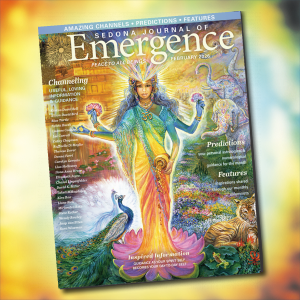Let the Alchemy of Unconditional Love Shape Your Perceptions
Let the Alchemy of Unconditional Love Shape Your Perceptions Gaia through Cristi Jenkins
Dear ones, the past few months on Earth have been difficult for many. All are affected in ways that you might not yet understand. You see, the collective energy of consciousness on the planet is not stagnant, and when events occur that seem to shake you to the very core of belief in the goodness of humanity, know that all is not as it seems. Many of you have held great hope in your hearts that, as the transition into a kinder and more benevolent Earth begins, it would be instantaneous. For the majority of those inhabiting Earth in human form, the collective transition seems slow and much too violent for your tastes.
Some teach that it is wise to remain in a state of disconnection to the realities that continue to shape your world. They counsel you to hold such a high vibration that you are beyond the everyday strife that still fights as human values. Many — and there is no judgment by Source in this decision — choose to let their egos become a part of this practice to see themselves as somehow better than those who have not yet awakened to the yearnings within their hearts for a freer and more loving relationship with Earth and the human family. This is what you call base human nature: You see the self as preferred or as somehow better than the person you do not understand so well or who manifests a difference that is uncomfortable to you.
Some of you may not realize this, but thinking in this manner, from a place of ego, also creates a sense of disconnection from life. By seeing yourself as disconnected from the rest of your human family, as somehow above others, you continue the illusion of the very separation from the love of Source that you want so much to overcome. All experience is equally valued and honored by the Creator. Much of your collective transition at this time deals with reevaluating the human ideas that have kept consciousness at bay, so to speak, because of the need to see experience as “us versus them.”








